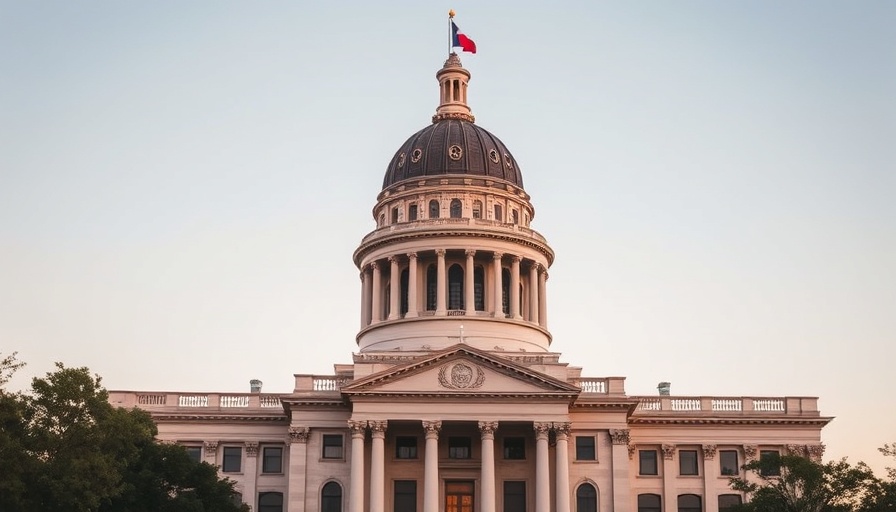
Texas Lawmakers Take Bold Step in School Funding
After nearly 11 hours of intense debate, the Texas House of Representatives has made a significant legislative move by approving a controversial school choice bill. This landmark decision marks the first time since 1957 that state funding will be allocated for families seeking private education for their children.
Understanding the School Choice Bill
The newly passed bill allows eligible families to access education savings accounts, essentially providing vouchers for students to enroll in private schools. Under this plan, families can expect $10,000 annually for private tuition, while families of disabled students may receive up to $30,000. Furthermore, home-schooled students can receive $2,000 under this initiative. Advocates, including Texas Gov. Greg Abbott, heralded this legislation as a vital victory for parental choice in education.
The Political Landscape: Divisions and Support
The approval of this bill was not without contention. It passed with an 85-63 vote, showcasing a clear divide between party lines; most Republicans supported the bill while two Republicans broke ranks to side with Democrats, who criticized the bill as "welfare for the rich." Democratic lawmakers raised concerns over the potential impact on public school funding, stating that divesting funds from public education could harm local school districts. Texas Democrats Chair Kendall Scudder expressed disappointment, stating that working families would ultimately bear the financial burden of what they label a "voucher scam."
Historical Context: School Choice Advocacy
The conversation around school choice is not new. For decades, proponents have argued for the right of families to choose educational paths that best suit their children's needs. However, opponents cite historical evidence suggesting that diverting public funds to private schools undermines the public education system's integrity. As calls for school choice grow louder in Texas, it reflects a nationwide trend where educational funding debates have become increasingly polarized.
Future Predictions: What Lies Ahead for Texas Education?
Looking ahead, the implications of this legislation could be profound. If the bill advances through the Senate, Texas could become a national model for school choice, influencing similar debates across the country. However, the journey is fraught with challenges—not only do lawmakers need to navigate potential backlash, but they must also figure out in practice how to balance public sentiment and educational equity.
Trump's Support and National Impacts
The involvement of notable figures, like former President Donald Trump, has placed Texas in the national spotlight concerning the school choice movement. Trump's recorded support to Governor Abbott adds a layer of national political significance, suggesting that this debate may take on larger implications beyond state boundaries. As discussions continue, all eyes may be on Texas to see how this legislation evolves and what innovations or challenges it sparks within the broader educational landscape.
What Can You Do As a Concerned Citizen?
For citizens interested in impacting the future of education in Texas (and beyond), staying informed and advocating for community needs are crucial. Attending school board meetings, engaging with local representatives, and making informed decisions in elections are all ways to become active participants in educational reform.
As Texas embarks on this pivotal journey towards school choice, the decisions made will resonate through classrooms, communities, and families across the Lone Star State. Advocates on both sides are passionate about their beliefs—what will your stance be in this ongoing debate?
 Add Element
Add Element  Add Row
Add Row 



 Add Row
Add Row  Add
Add 


Write A Comment